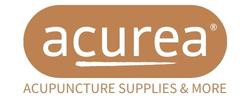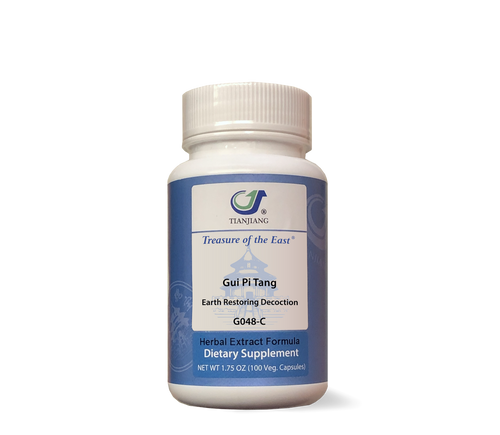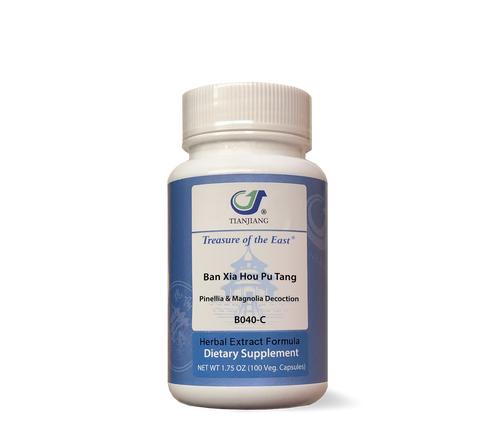Logged in Practitioners automatically receive below MSRP Practitioner Pricing on this product.
Full-spectrum, water-based herbal extract; concentrated 5:1 capsules (100 caps./bottle).
Item Number: G048-c
Chinese Name: 归脾汤, Gui Pi Tang
English Name: Earth Restoring Decoction
Formula Principles:
- Augments Qi
- Nourishes the Blood
- Strengthens the Spleen
- Nourishes the Heart*
TCM Pattern
- Spleen Not Governing Blood
- Heart Blood Deficiency
- Heart (Blood) and Spleen (Qi) Deficiency due to worry
- Atrophy disorder due to Spleen and Stomach Qi Deficiency
WHAT IS GUI PI TANG?
Gui Pi Tang, known as “Earth Restoring Decoction,” is a Traditional Chinese Medicine (TCM) developed during the Ming Dynasty by the famous herbalist Li Shi Zhen. Formulated around 1575 AD, Gui Pi Tang was mainly used to treat ailments related to Qi and blood deficiencies.
WHAT ARE THE BENEFITS OF GUI PI TANG?
Gui Pi Tang is widely known as a gentle, tonifying formula. In TCM, Gui Pi Tang tonifies Spleen qi and Heart blood. TCM practitioners often recommend Gui Pi Tang for insomnia, poor memory, anemia, chronic fatigue, and other conditions associated with blood and Spleen qi deficiency.
Ingredients:
| Huang Qi (Mi) | Astragalus Root (Processed) |
| Bai Zhu | White Atractylodes Rhizome |
| Gan Cao (Mi) | Licorice Root (Processed) |
| Fu Ling | Poria |
| Yuan Zhi (Zhi) | Polygala Root (Processed) |
| Suan Zao Ren (Chao) | Spiny Jujube Kernel (Processed) |
| Chuan Mu Xiang | Vladimiria Root |
| Sheng Jiang | Ginger |
| Da Zao | Jujube Fruit |
| Dang Gui | Chinese Angelica Root |
| Long Yan Rou | Longan Flesh |
| Bai Shen | Ginseng Root |
*These statements have not been evaluated by the Food and Drug Administration. These products are not intended to diagnose, treat, cure, or prevent any disease. Information is derived from traditional Chinese medicine theory and practice, and is not intended to be a substitute for professional medical advice.












